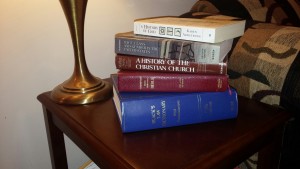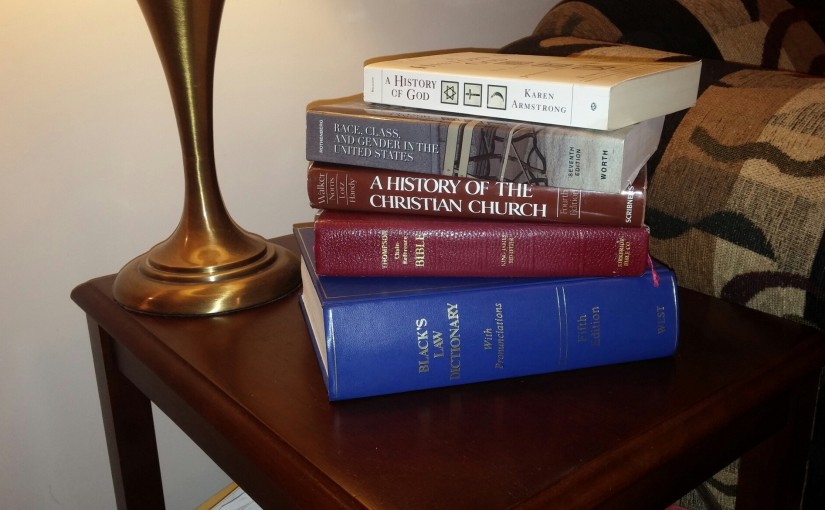 Have you ever noticed how federal, state and local governing bodies close their offices and go on vacation during the Christmas holiday season? The United States Congress will take a “recess” for about 10 days, from about December 21st through December 31st. (My third grade recesses never lasted that long. How about yours?) The law-makers will leave Washington, return to their respective home states and celebrate the season with their families and friends. Executive agencies, (that is, those who carry out the laws, rules, regulations, programs, policies and procedures that have been put into place by the law-makers) will close their doors for just two or three days. All of the political work will come to a screeching halt, the problems of government will give way to a collective hush so that we may quiet down for the holidays and put differences aside, all in the name of peace on earth and good will toward men (and women, too!).
Have you ever noticed how federal, state and local governing bodies close their offices and go on vacation during the Christmas holiday season? The United States Congress will take a “recess” for about 10 days, from about December 21st through December 31st. (My third grade recesses never lasted that long. How about yours?) The law-makers will leave Washington, return to their respective home states and celebrate the season with their families and friends. Executive agencies, (that is, those who carry out the laws, rules, regulations, programs, policies and procedures that have been put into place by the law-makers) will close their doors for just two or three days. All of the political work will come to a screeching halt, the problems of government will give way to a collective hush so that we may quiet down for the holidays and put differences aside, all in the name of peace on earth and good will toward men (and women, too!).
But why does the government shut down, especially in light of the fact that when the doors open back up, it will be back to business as usual? The same fight that was being fought before the doors closed will be resumed when the doors open. The same burden that was oppressive before the doors closed will be oppressive when the doors reopen. The same people who were on top when the doors closed with a sign saying, “Gone For The Holidays” will still be on top when the sign is flipped back over to say, “Open For Business.” And the same people who were on the bottom, waiting in line, will still be on the bottom, waiting in line. I don’t know about the rest of the world but in the United States, we have de-politicized Christmas by allowing government to fade into the background for a few days. The truth, however, is that as the shepherds were keeping watch over their flocks on that starry, chilly evening in Bethlehem, politics was thick in the air the night that Christ was born.
In order to under the politics of Christmas, we need to understand a little about the history of the Jews ( the people of Israel) being under foreign rulers. (I promise to keep it painless and simple).
*The Jews had been ruled over by the Babylonians, Assyrians, Persians and Greeks. After the Exodus from Egypt (led by Moses), Israel had been allowed to return to their homeland but they were still ruled by foreign governments. Jesus (who was a Jew) was born during the time the people of Israel were under the Roman ruler, Caesar Augustus.
*Now for a little lesson on Caesar Augustus. Augustus was originally named Octavian and was the adopted son of Julius Caesar. After Julius Caesar’s death, Julius was divinized, or elevated to the status of ‘god’. Octavian, Julius’ son, was considered “the son of god” and his name was changed to Augustus, which means “worthy of worship”. Augustus became the object of worship throughout the Roman Empire. He was believed to have been sent by God as a Savior for the people; his birthday was adopted as the new beginning of the year; and his birth was viewed as the beginning of a new era of ‘good news’ (evangelion) and peace (peace, which was by military force) for the whole world.
*Caesar Augustus funded his Roman Empire by making the people pay taxes. There were grain taxes, produce taxes, sales taxes, temple taxes, occupational taxes, custom taxes, transit taxes, and many others. Three percent of the elite, like the Roman Senate, along with the Roman soldiers and the citizens of Rome didn’t feel the sting but the people of Israel were part of the 97% of people who were in poverty as a result of the heavy taxation. Caesar Augustus needed to know how many people were in the Roman Empire, in order to make sure the taxes were accurate.
*So, “In those days Caesar Augustus issued a decree that a census should be taken of the entire Roman world.” (Luke 2:1) These were the politics that surrounded Jesus’s birth. Roman officials had declared that Caesar Augustus was the ‘son of god’, the ‘savior’ of the whole earth by bringing ‘peace’ to Rome, and that declaration was heralded as ‘good news.’ This is the same message that the angel gave the shepherds concerning Jesus: a savior is born, he is the Christ or God’s Anointed One and he will bring peace on earth. The difference, however, is that where Caesar Augustus ruled with an iron fist and oppression, Jesus, born in a lowly manger, to an unmarried virgin girl and a working-class carpenter, would establish his Lordship and rule through humility and compassion. Caesar Augustus was viewed as a cheap imitation, a fake! But Jesus was the savior on whom the children of Israel and all who were oppressed had been waiting. The gospel writer, Luke, challenges the Roman practices of his day by telling us the story of a baby who was born into a highly charged social and political climate.
Politics is hard work and everyone needs a break. But if Jesus’s birth was seated in the middle of a major political situation, why do our governments shut down and divorce themselves from the true backstory of the Christmas season? Today, in the United States (and perhaps in other countries) governing bodies shut down to take a break from politics. When Caesar Augustus ruled the Roman Empire, politics was the name of the game and the game was in full play the night that Christ was born. But Jesus was not born so that governments could take a brief break from politics or to give people a short recess from oppression and pain. Jesus was born to completely change the political game.
**********************************************
No written portion of any article may be shared without permission from the author.
Copyright © 2015 by Kanisha L. Adkins.
phone 202-854-1963 – email: kladkins3@gmail.com
Follow me on twitter @kanishaladkins
Share This:

